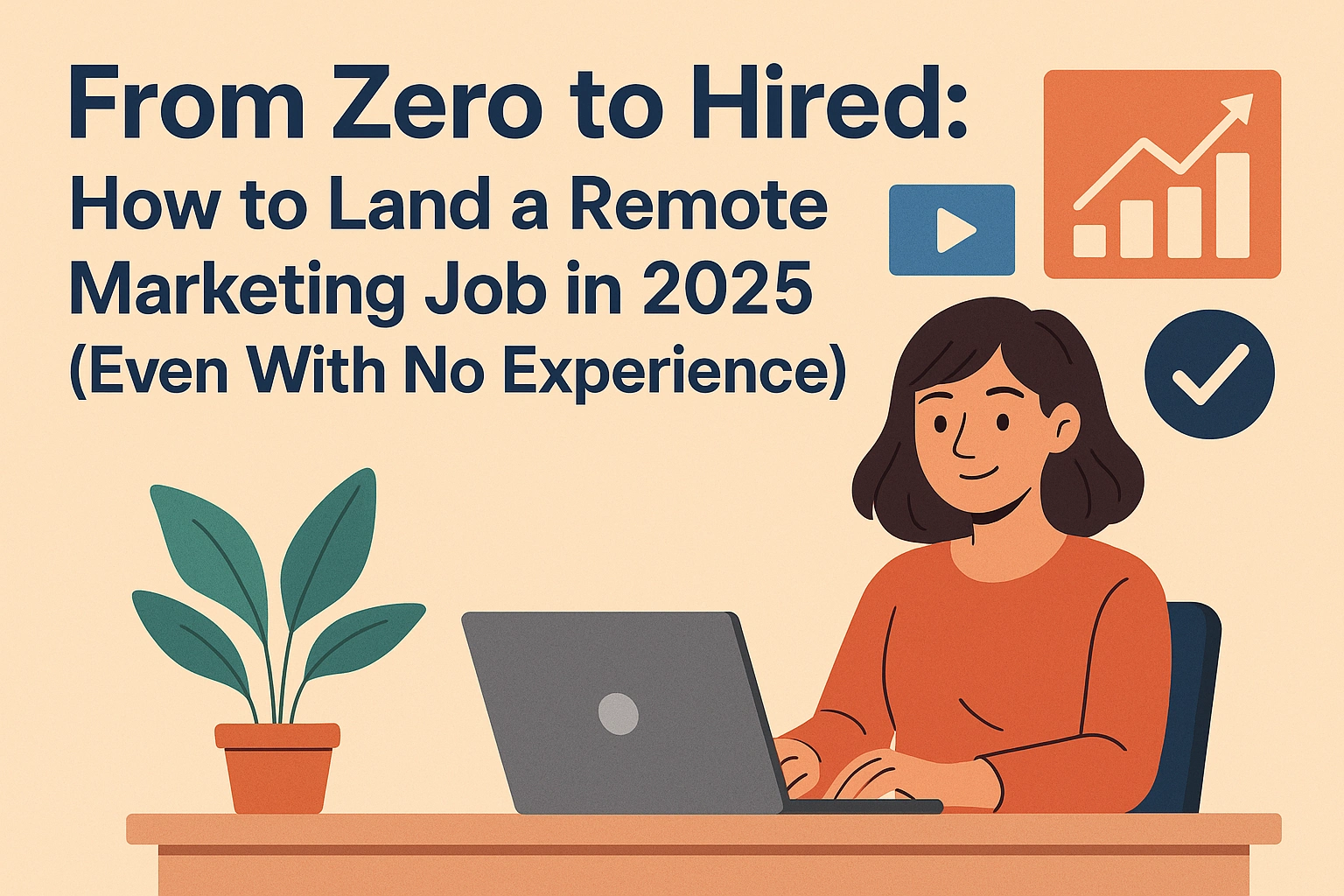From Zero to Hired: How to Land a Remote Marketing Job in 2025

Understanding the Remote Marketing Job Landscape
The State of Remote Marketing Employment in 2025
Types of Remote Marketing Positions
Common Pathways to Remote Marketing Careers
Preparing Your Remote Marketing Job Application
Crafting a Remote-Optimized Resume
Building a Digital Portfolio That Showcases Remote Skills
Writing Cover Letters for Remote Marketing Positions
Finding Remote Marketing Opportunities
Remote-Specific Job Boards and Platforms
Leveraging General Job Sites for Remote Opportunities
Tapping Into Industry Networks and Communities
Standing Out in Remote Job Applications
Demonstrating Remote Work Readiness
Highlighting Tool Proficiency and Technical Skills
Showcasing Results and Data-Driven Achievements
Mastering Remote Marketing Job Interviews
Common Remote Marketing Interview Questions
Technical Assessment Preparation
Virtual Interview Best Practices
Negotiating Remote Marketing Job Offers
Understanding Remote Compensation Structures
Evaluating Remote Work Policies and Expectations
Negotiating Flexible Work Arrangements
Starting Strong in Your New Remote Marketing Role
The First 30 Days: Establishing Remote Presence
Setting Up Your Remote Marketing Workspace
Building Visibility and Advancement Opportunities
Conclusion: Your Remote Marketing Career Path
References
Understanding the Remote Marketing Job Landscape
The State of Remote Marketing Employment in 2025
Types of Remote Marketing Positions
Common Pathways to Remote Marketing Careers
Preparing Your Remote Marketing Job Application
Crafting a Remote-Optimized Resume
Building a Digital Portfolio That Showcases Remote Skills
Writing Cover Letters for Remote Marketing Positions
Finding Remote Marketing Opportunities
Remote-Specific Job Boards and Platforms
Leveraging General Job Sites for Remote Opportunities
Tapping Into Industry Networks and Communities
Standing Out in Remote Job Applications
Demonstrating Remote Work Readiness
Highlighting Tool Proficiency and Technical Skills
Showcasing Results and Data-Driven Achievements
Mastering Remote Marketing Job Interviews
Common Remote Marketing Interview Questions
Technical Assessment Preparation
Virtual Interview Best Practices
Negotiating Remote Marketing Job Offers
Understanding Remote Compensation Structures
Evaluating Remote Work Policies and Expectations
Negotiating Flexible Work Arrangements
Starting Strong in Your New Remote Marketing Role
The First 30 Days: Establishing Remote Presence
Setting Up Your Remote Marketing Workspace
Building Visibility and Advancement Opportunities
Conclusion: Your Remote Marketing Career Path
References
Posted Jun 6, 2025
Guide on strategies to land remote marketing jobs in 2025.
0
52


